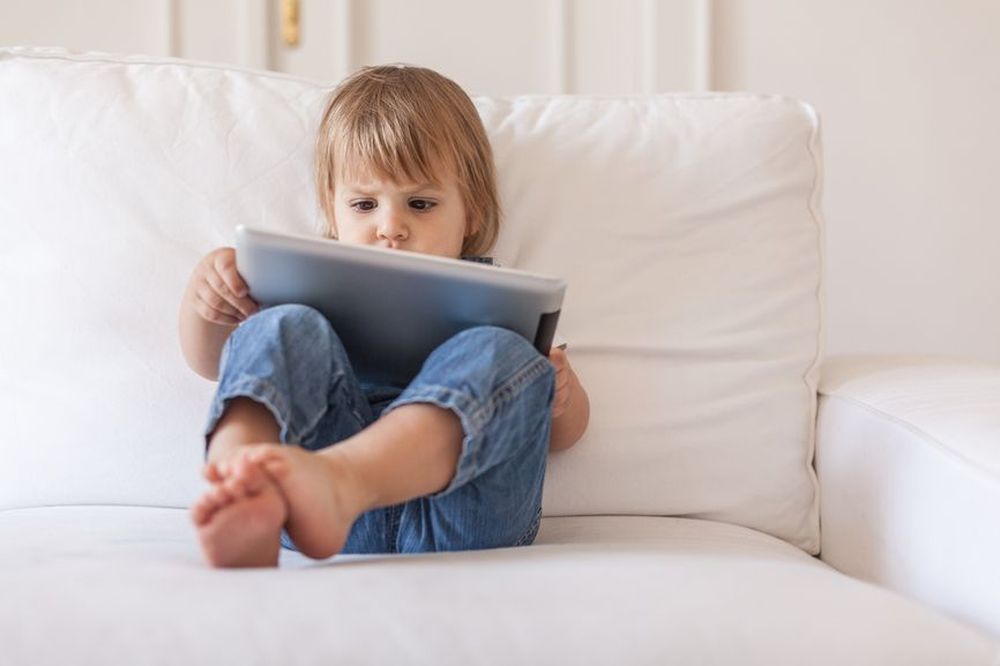Screen time - Why less is best for preschoolers
Published on Wednesday, 27 March 2019
Last updated on Tuesday, 31 December 2019

Tablets and TV can be a tempting way to entertain preschoolers, but according to recent research, too much screen time can do more harm than good.
The Growing Up in New Zealand study has found that preschoolers who exceed the Ministry of Health’s screen time guidelines are more likely to suffer behavioural and health problems.
Which begs the question - how much screen time is recommended, how much are preschoolers actually getting, and what does this mean for growing bodies and brains?
Comparing Government recommendations with real-time screen usage
The Ministry of Health's Active Play Guidelines are clear about how much screen time under fives should be exposed to. They recommend:
- No sedentary screen time for under-twos
- Less than one hour a day for children aged between two and five
In reality, though, many youngsters are watching more than their fair share. As part of the Growing Up in New Zealand study, researchers looked at the screen time data of more than 5,000 young children and found that, on average:
- Two-year-olds watch screens for about 1.5 hours a day
- Children aged 3.75 years watch screens for about two hours a day
Overall, a 'significantly low' number of children are actually meeting the national screen time standards, with only 18.4 per cent of the 5,000 youngsters meeting the 'less than one hour a day' guideline by the age of four-and-a-half.
The effects of excess screen time
With so many under fives over-doing their screen time, it's not just square eyes that parents should be worried about.
This study suggests that children who exceed their screen time guideline when they're two-years-old are:
- More likely to be obese
- Visit the doctor more
- Have lower physical motor skills; and
- May have hyperactivity problems when they reach the age of around four-and-a-half
In terms of body mass, the odds of a child moving from 'normal weight' to 'overweight' or 'obese' was 1.27 times higher when they exceeded their screen time recommendation at the age of two.
How parents should handle their preschoolers' screen time
As with many things in life, moderation is key. Experts see no reason to change the screen time guidelines, instead they urge parents to take a measured approach to their child's tablet, TV and smart phone use.
For instance, Early Childhood Council chief executive, Peter Reynolds sees the value of screen time, as long as it is monitored appropriately.
"Children are remarkable sponges and we know that the first 1,000 days are crucial for learning, so I think if screen time is controlled, it does serve a use," he said.
The Minister for Social Development, Carmel Sepuloni adds, "While some screen time can be beneficial for learning, that time needs to be balanced with regular physical activity and outside play, which [are] key to children's development."
By adhering to the Active Play Guidelines, your preschooler can still access less than 60 minutes of educational apps or favourite kids' shows per day, without putting their health and wellbeing at risk.
Of course, you may choose to limit screen time further, and some parents of preschoolers prefer to cut it out altogether.
One such mum is Eran James, who made the decision to stop her five-year-old's screen time after he became increasingly aggressive and started throwing regular tantrums.
Little Xavier is now limited to short periods of screen time at school, with none at home; meaning he focuses on LEGO and swimming, rather than iPad apps.
Ms James has noticed a positive difference and says; 'After Xavier's experience, I feel children really shouldn't be exposed to screens under the age of seven as their brains are still developing.'
The takeaway from all this is that whether you tune in to the Active Play Guidelines or switch off screen time completely, it's important to find a healthy balance when it comes to your preschooler and digital devices.
Related Articles

Books are still better for children than devices
Even in the age of digital technology books will always be better for children.

Fostering a sense of wonder
How to foster a sense of wonder and awe in children and how it benefits them.

Supporting children to thrive in care
Whether your little one launches into child care without looking back or struggles with separation anxiety at drop-off time, it's important to support them in care.
